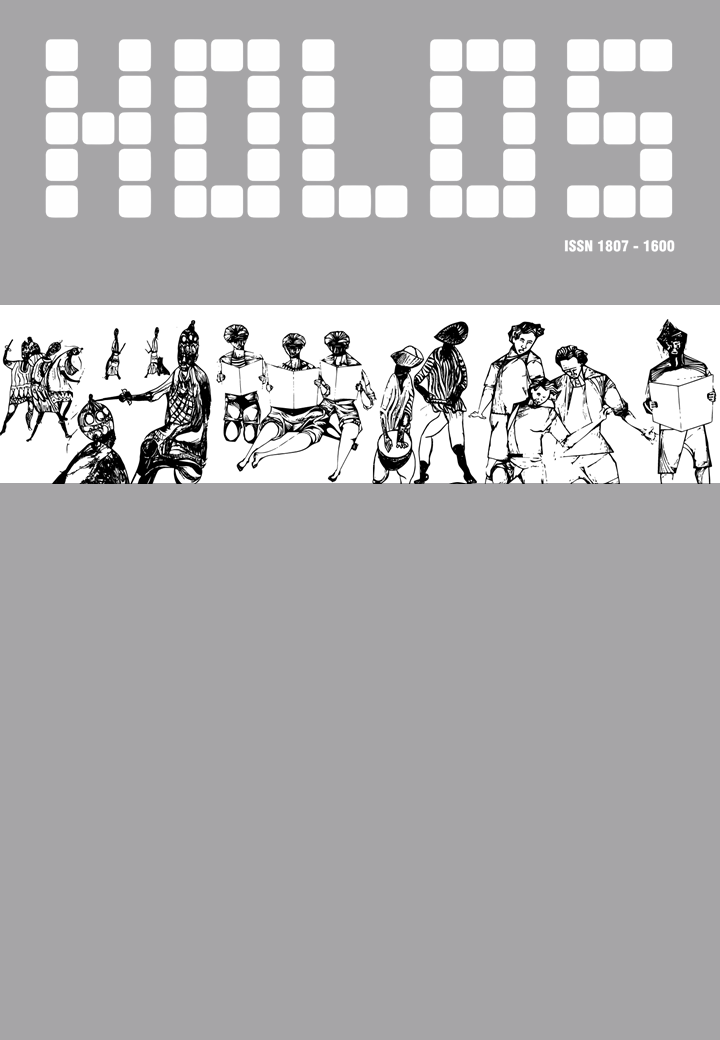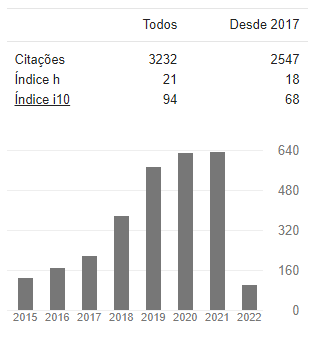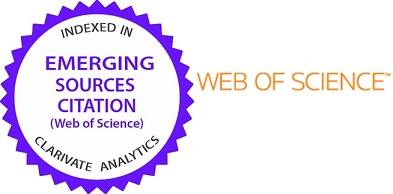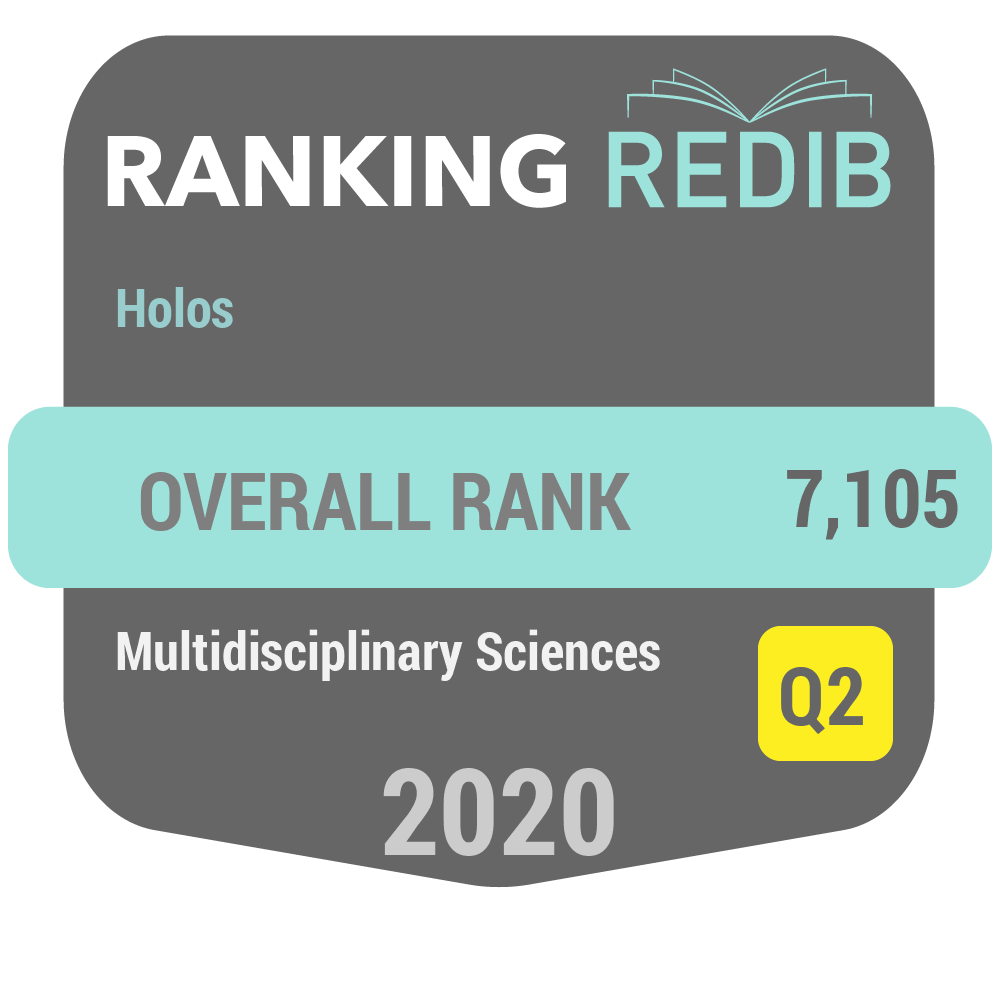CTSA NO PROGRAMA DE RESIDÊNCIA PEDAGÓGICA EM QUÍMICA: SUBSÍDIOS FORMATIVOS À DOCÊNCIA
Palavras-chave:
Citizenship., Scientific literacy, teaching, learningResumo
Para o professor inserir a perspectiva Ciência-Tecnologia-Sociedade-Ambiente – CTSA em suas aulas, precisa aprender do que se trata esse assunto, como se contempla no ensino as suas inter-relações. Por isso, como objetivo, foi planejado e desenvolvido o ensino de Eletroquímica via CTSA, a fim de identificar se oportuniza subsídios formativos docentes para residentes em química. Participaram da pesquisa qualitativa, oito bolsistas do Programa de Residência Pedagógica do curso Licenciatura em Química de uma Universidade Tecnológica Federal do Paraná (UTFPR), que contribuíram com reflexões, respostas a questionários e entrevistas de grupo durante o desenvolvimento de uma proposta CTSA para o ensino de Eletroquímica. Os resultados, feitos de acordo com a análise textual discursiva, evidenciaram que os residentes compreenderam que trabalhar essa perspectiva requer do professor um perfil de pesquisador, que os temas sociais precisam de delineamentos contextualizados, e aprenderam que a interdisciplinaridade é primordial para contemplar as relações
Downloads
Referências
Aikenhead, G. S. (1990). Science-technology-society development of science education: from curriculum policy to student learning. In: International Conference on Science Teaching for the 21st Century: ACT - Literacy in Science and Technology, 1, Brasília, jun. (Mimeogr.).
Augusto, T. G. S. et al. (2004). Interdisciplinarity: conceptions of teachers in the Natural Sciences area in in-service training. Science & Education, 10 (2), 277-289. Available at: https://www.scielo.br/j/ciedu/a/k4tGvBc6G83p7qDJ9tcP4LL/abstract/?lang=pt. Accessed on: 06 jul. 2022.
Auler, D.; Bazzo, W. A. (2011). Reflections for the implementation of the STS movement in the Brazilian educational contexto. Science & Education, 7 (1), 1-13. Available at: https://www.scielo.br/j/ciedu/a/wJMcpHfLgzh53wZrByRpmkd/. Accessed on: 06 jul. 2022.
Brasil. (2018). CAPES Notice No. 06/2018. Pedagogical Residency Program. Available at: https://www.gov.br/capes/pt-br/centrais-de-conteudo/01032018-edital-6-2018-residencia-pedagogica-pdf. Accessed on: July 2 2021.
Brasil. (2019). Ministry of Education. National Council of Education. Full Council. CNE/CP Resolution No. 2, of December 20, 2019. Available at: http://portal.mec.gov.br/docman/dezembro-2019-pdf/135951-rcp002-19/file. Accessed on: July 2 2021.
Brum, D. L.; Higa, I.; Lorenzetti, L. (2021). An analysis of research on the STS educational approach in the initial training of teachers in natural sciences: where have we been going? Revista Vivências, 17 (32), 31-56. Available at: http://revistas.uri.br/index.php/vivencias/article/view/285. Accessed on: July 2 2021.
Cruz, V. E. R.; Machado, C. E. (2017). Investigation of the teaching-learning of chemistry for the teaching of electrochemistry, 11th FEPEG - Forum Teaching, Research, Extension, Management. Available at: http://www.fepeg2017.unimontes.br/anais/download/2383. Accessed on: July 2 2021.
Fernandes, J. P.; Gouvêa, G. (2019). The CTS perspective and teacher education in the view of Brazilian basic education teachers. Revista CTS, 14 (41), 41-69. Available at: https://www.redalyc.org/journal/924/92460273004/html/. Accessed on: 06 jul. 2022.
Gil, A. C. (2008). Methods and techniques of social research. 6th ed. São Paulo: Atlas.
Lacerda, N. O. S.; Strieder, R. B. (2019). STS education and teacher education: dimensions to be considered from the critical-transforming model. Educação e Fronteiras, 9 (25), 110-126. Available at: https://ojs.ufgd.edu.br/index.php/educacao/article/view/11015. Accessed on: 06 jul. 2022.
López Cerezo, J. A. A. (2009). Science, Technology and Society: the state of science in Europe and the United States. In: Gordillo, M.M. et al. (Orgs) Education, science, technology and society. Madrid: Center for High-Level University Studios of the OEI (Organization of Ibero-American States), 21-33.
Mendes, M. (2018). Teaching of Electrochemistry under the CTSA proposal in teacher education. Course Conclusion Paper (Licentiate Degree in Chemistry). Federal Technological University of Paraná-UTFPR. Londrina, Paraná.
Monteiro, I. G. (2018). CTSA and teaching chemistry: (re)building methodological practices for initial and continuing teacher education. Dissertation, Graduate Program in Science and Mathematics Education, Federal University of Pernambuco, Caruaru.
Moraes, S. E. (2005). Interdisciplinarity and transversality through thematic projects. Revista Brasileira de Estudos Pedagógicos, 86 (213/214), 38-54. Available at: http://rbep.inep.gov.br/ojs3/index.php/rbep/article/view/1402. Accessed on: 06 jul. 2022.
Moraes, R.; Galiazzi, M. C. (2006). Discursive Textual Analysis: constitutive process of multiple faces. Ciência & Educação, 12 (1), 117-128. Available at: https://www.scielo.br/j/ciedu/a/wvLhSxkz3JRgv3mcXHBWSXB/abstract/?lang=pt. Accessed on: 06 jul. 2022.
München, S. (2019). The insertion of the Science-Technology-Society perspective in the initial formation of chemistry teachers. Revista Insignare Scientia, 2 (4), 416-434. Available at: https://periodicos.uffs.edu.br/index.php/RIS/article/view/10999. Accessed on: 06 jul. 2022.
Nóvoa, A. (1992). Teachers and their training. Lisbon: Don Quixote.
Nunes, A. O.; Dantas, J. M. (2012). The science-technology-society-environment (CTSA) relations and the attitudes of undergraduates in chemistry. Educ. chem., 23 (1), 85-90. Available at: https://www.sciencedirect.com/science/article/pii/S0187893X17301040. Accessed on: 06 jul. 2022.
Pimenta, S. G. (2012). The internship in teacher education: unity, theory and practice? São Paulo: Cortez.
Pimenta, S. G.; Lima, M. S. L. (2012). Internship and teaching. São Paulo: Cortez.
Pinheiro, N. A. M., Silveira, R. M. C. F.; Bazzo, W. A. (2007). Science, Technology and Society: the relevance of the STS approach to the context of High School. Science & Education, 13 (1), p. 71-84. Available at: https://www.scielo.br/j/ciedu/a/S97k6qQ6QxbyfyGZ5KysNqs/abstract/?lang=pt. Accessed on: 06 jul. 2022.
Praia, J., Gil-Pérez, D.; Vilches, A. (2007). The role of the nature of science in education for citizenship. Ciência & Educação, 13 (2), 141-156. Available at: https://www.scielo.br/j/ciedu/a/t9dsTwTyrrbz5qC3y5gCVGb/?lang=pt. Accessed on: 06 jul. 2022.
Rodríguez, A. S. M. (2015). Chemistry education with a STS focus for citizenship education: paths taken in the UPN and FURG degrees (Colombia – Brazil), Dissertation, Postgraduate Program in Science Education: Chemistry of Life and Health, of the Federal University of Rio Grande – FURG, Rio Grande.
Rodrigues, A. V.; João, P. (2016). Integrated Science Education Practices: an Ongoing Training Program for Teachers with a CTS Character. Revista CTS, 11 (33), 181-202. Available at: chrome-extension://efaidnbmnnnibpcajpcglclefindmkaj/https://www.redalyc.org/pdf/924/92447592010.pdf. Accessed on: 06 jul. 2022.
Santos, W. L. P. (2007). Contextualization in science education through STS themes in a critical perspective. Science & Teaching, 1 (no. special for. 112). Available at: https://www.academia.edu/27297895/Contextualiza%C3%A7%C3%A3o_no_ensino_de_ci%C3%AAncias_por_meio_de_temas_CTS_em_uma_perspectiva_cr%C3%ADtica. Accessed on: 06 jul. 2022.
Santos, W. L. P.; Mól, G. S. (2005). Chemistry and society: single volume, high school. São Paulo: New Generation.
Santos, W. L. P.; Mortimer, E. F. (2000). An analysis of theoretical assumptions of the STS (Science-Technology-Society) approach in the context of Brazilian education. Essay: research in science education, 2 (2), 133-162. Available at: https://www.scielo.br/j/epec/a/QtH9SrxpZwXMwbpfpp5jqRL/?lang=pt. Accessed on: 06 jul. 2022.
Santos, W. L. P.; Mortimer, E. F. (2001). Decision-making for responsible social action in science education. Science and Education, Bauru, 7 (1), 95-110. Available at: https://www.scielo.br/j/ciedu/a/QHLvwCg6RFVtKMJbwTZLYjD/?lang=pt. Accessed on: 06 jul. 2022.
Santos, W. L. P.; Schnetzler, R. P. (1997). Chemistry Education: Commitment to Citizenship. Ijuí: Unijuí, 1997.
Santos, W. L. P.; Schnetzler, R. P. (2010). Chemistry Education: Commitment to Citizenship, Ijuí: Unijuí.
Tardif, M. (2012). Teacher knowledge and professional training. Petropolis: Voices.
Vale, J. M. F. (1998). Scientific education and society. In: Nardi, R. (Org.). Current issues in science teaching. São Paulo: Scriptures, p. 1-7.
Downloads
Publicado
Como Citar
Edição
Seção
Licença

Este trabalho está licenciado sob uma licença Creative Commons Attribution-NonCommercial-NoDerivatives 4.0 International License.





































